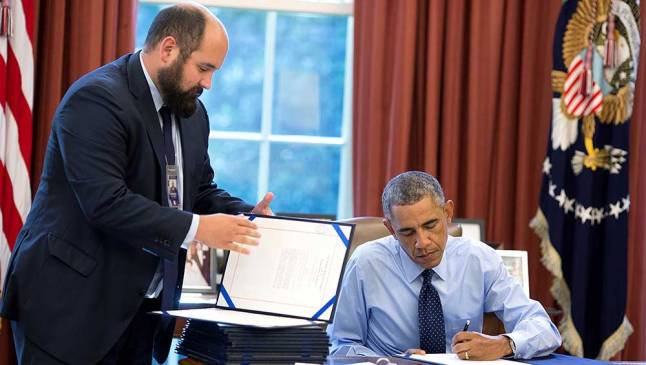
by Spencer Helsel
Like many of you, I was shocked and horrified in 2013 by the disclosure of PRISM: the secret collection of personal data without the consent of the individual by the NSA.
Now, I will note that this article isn’t to debate Edward Snowden’s credibility or ethics in that situation, but to bring up a much more present issue. Fast-forward to just last Monday. President Trump, receiving a bill from the Republican-led Congress, undid an Obama-era regulation that will now allow ISPs to sell your personal data without your explicit consent. This, in effect, means that without your permission, things like your browser history, geo-location information, some financial information, health data (as far as revealed on the internet outside of HTTPS), and children’s information can be sold to anyone with enough cash to buy it and does not stipulate any conditions. This can be either wholesale sweep—say, for the purposes of targeting a specific area by advertisers—or target specific individuals. All it takes is your ISP’s willingness to sell.
Are PRISM and this the same? No, of course not, but there are disturbing similarities between the two; specifically the “without consent” part. If the hallmark of liberty—and Libertarianism, if I understand it correctly—is a voluntary association, what happens when your personal information is sold and you have no say in it? When does money take the place of government as the boogeyman in the closet?
Some might argue it is benign and allows advertisers more freedom, but freedom for them but not for you to give consent?
Now businesses need to thrive and in many cases, government regulation can get in the way, but was this really the case here? On the surface, this deregulation looks like it’s getting government out of the bedroom (or, in this case, out of your computer). And there are definitely ways the Obama-era law was lacking, specifically in terms of the FCC and FTC. Unfortunately, as the law stands, it opens the door for someone else to abuse your privacy, but instead, use wealth as opposed to political power.
And government officials can still use your personal information. Think about this: They want to keep power, so a SuperPAC that works for them buys up browser history to find out who votes for which party, and then gerrymanders that area to ensure they stay in power.
Another situation: a newly-inspired activist wishes to run for office against the ruling party. Their private data can then be bought and weaponized against their efforts in order to, again, ensure the ruling party stays in power.
Both of these situations are, of course, only hypothetical, but I’m not for opening doors that shouldn’t be opened.
I understand Obama and his regulations have been seen as unnecessarily burdensome by many and government regulation is seen as something next-to (or, in some cases, equal-to) violence. But in this case? The same government officials who take money from these internet companies pass laws to make it easy for these companies to collect your private life, and then they tell you that you have nothing to worry about? That should seem suspicious.
In closing, I’ll concede a few things. Again, this isn’t PRISM. And for the record, AT&T, Verizon, and Comcast have all stated they would not sell your personal data. And, as we can clearly see, laws can be overturned, so government regulations sort of suck when it comes to protecting you as the average citizen.
But this is something that should concern privacy groups and anyone who worries about their personal freedoms. What if you can’t afford “the good and ethical internet providers” or you don’t live in an area ethical providers serve? How long before money becomes a lure for a company to violate your privacy? And there are many, such as Verizon, who say the regulations the Trump administration just axed were already standard practice, so how could they be burdensome?
Most importantly: which constituents asked for this regulation to be overturned? If this was about us as citizens, why was this not the rallying cry during the election? It was, for the simple fact, not asked for by the voting citizenry.
AUTHOR’S NOTE: Instead of proposing fixes to such a complicated issue, I’ll leave it up to you to think for yourself and debate about solutions (or if such a solution is needed). References for reporting can be found here and here should you want to read about the issue further. Current solutions being floated at the time of posting are to instate bi-partisan rules on internet privacy or return the power of “policing” to the FTC. So far, no concrete moves by Congress have been seen on either of these two suggestions.